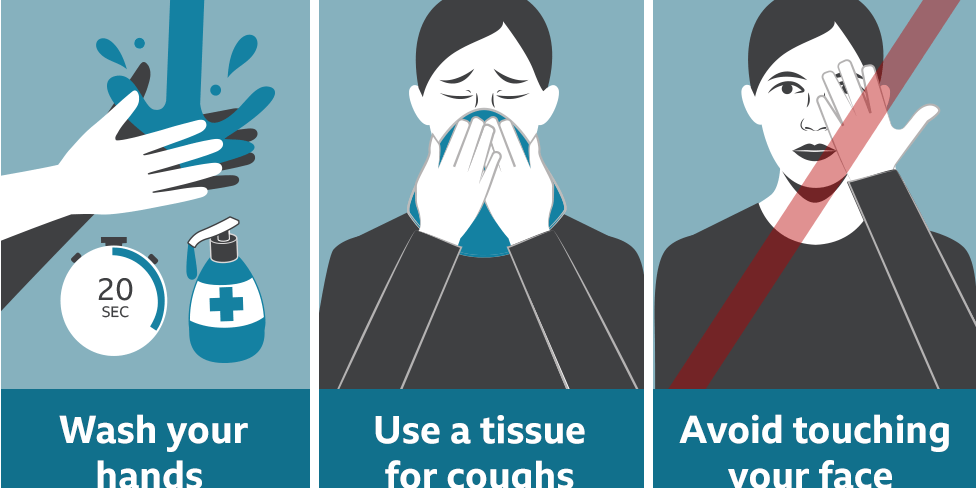Coronavirus symptoms: What are they and how do I protect myself?
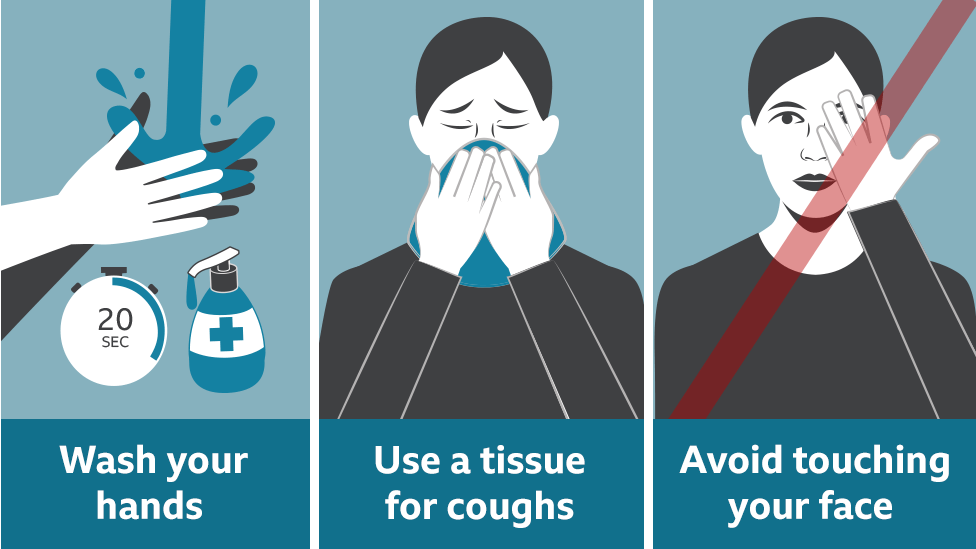
Coronavirus has spread to 176 countries or territories, including the UK, and claimed more than 24,000 lives.
So, what is the disease, how does it spread and when are people most infectious?
How do I protect myself?
The best thing is regular and thorough hand washing, preferably with soap and water.
Coronavirus spreads when an infected person coughs small droplets – packed with the virus – into the air. These can be breathed in, or cause an infection if you touch a surface they have landed on, then your eyes, nose or mouth.
So, coughing and sneezing into tissues, not touching your face with unwashed hands, and avoiding close contact with infected people are important for limiting the spread.
Face masks do not provide effective protection, according to medical experts.

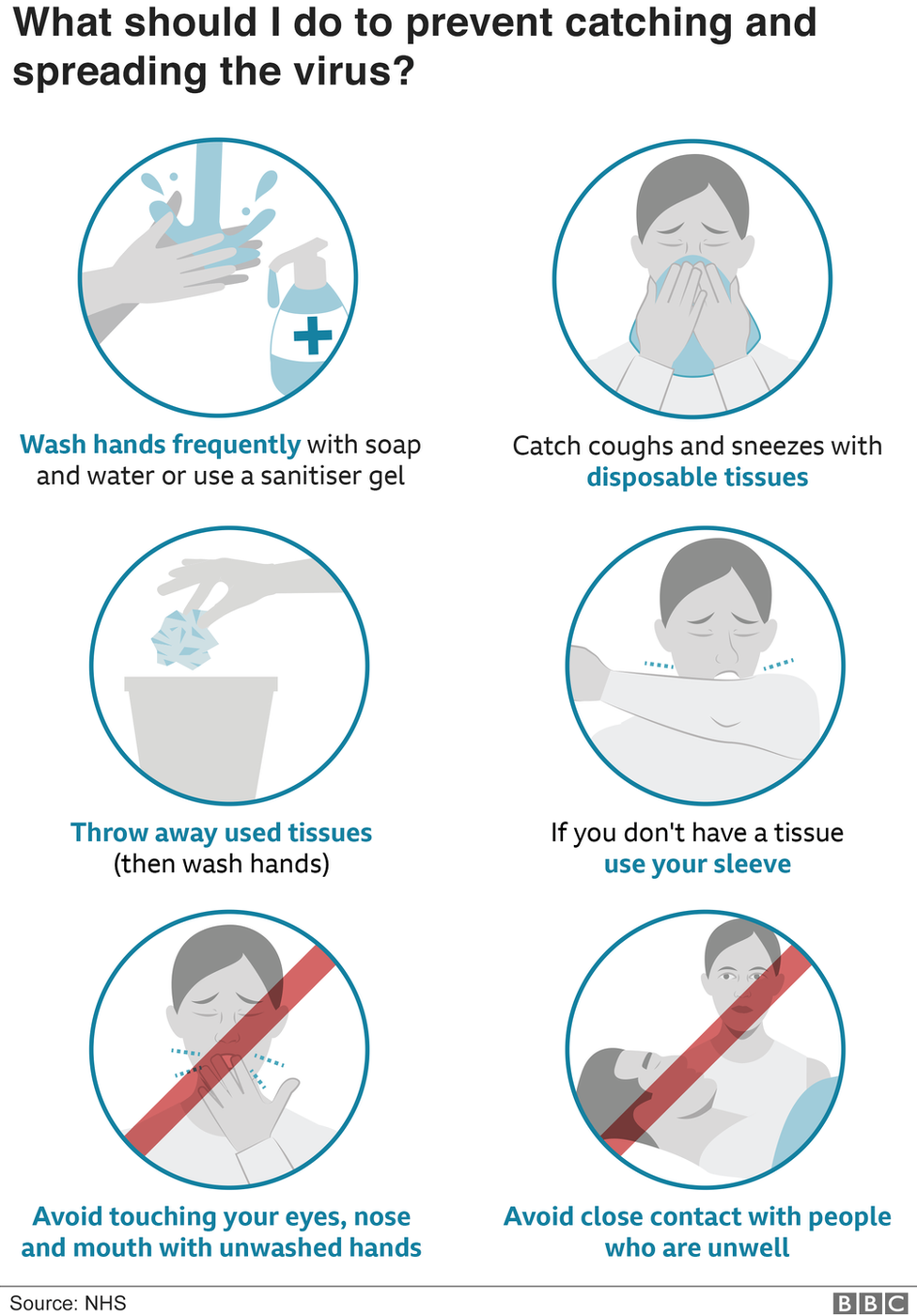

What are the coronavirus symptoms?
Coronavirus infects the lungs. The symptoms start with a fever followed by a dry cough, which can lead to breathing problems.
This is a new, continuous cough and means coughing a lot for more than an hour, or having three or more coughing episodes in 24 hours (if you usually have a cough, it may be worse than usual).
It takes five days on average to start showing the symptoms, scientists have said, but some people will get symptoms much later than this. In fact the World Health Organization (WHO) says the incubation period lasts up to 14 days.
Ear, nose and throat specialists in the UK have also noticed rising reports of anosmia – the term for loss of smell.
And increasing numbers of people on social media have been reporting a lost sense of smell and taste. Some have tested positive for coronavirus.
However, the evidence so far is only anecdotal and viruses behind the common cold often lead to lost senses of smell and/or taste.
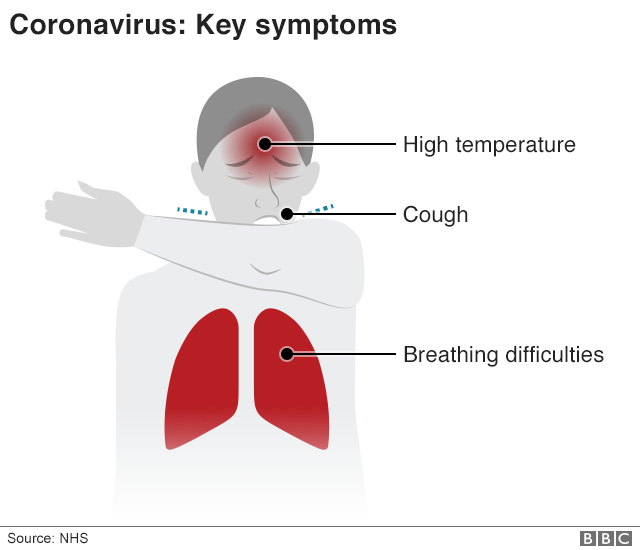

People will be most infectious when they have symptoms, but there have been suggestions some can spread the virus even before they are sick.
The early symptoms can easily be confused with other winter bugs including colds and flu.
How deadly is coronavirus?
The proportion dying from the disease appears low (between 1% and 2%) – but the figures are unreliable.
Thousands are being treated but may go on to die – so the death rate could be higher. But it may also be lower if lots of mild cases are unreported.
A World Health Organization examination of data from 56,000 patients suggests:
- 6% become critically ill – lung failure, septic shock, organ failure and risk of death
- 14% develop severe symptoms – difficulty breathing and shortness of breath
- 80% develop mild symptoms – fever and cough and some may have pneumonia
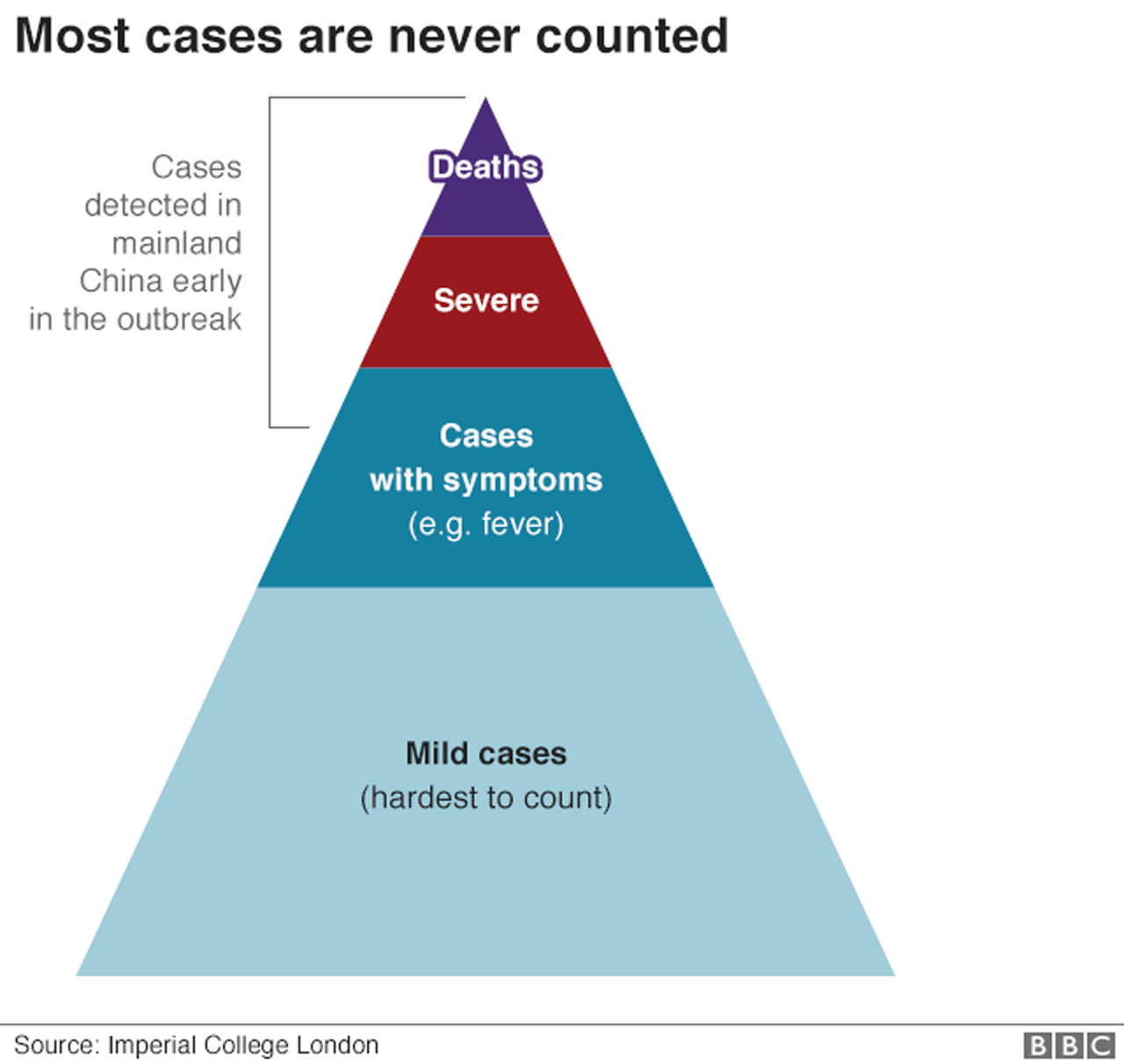

Older people, and those with pre-existing medical conditions (such as asthma, diabetes, heart disease, high blood pressure), are more likely to become severely ill. The data from China also suggests that men are at slightly higher risk of dying from the virus than women.
Treatment relies on keeping the patient’s body going, including breathing support, until their immune system can fight off the virus. Work to develop a vaccine is under way.
- How close are we to a vaccine or drug?
- A visual guide to the outbreak
- Coronavirus: Your questions answered
What should I do if I think I have coronavirus?
Patients with mild symptoms – such as a new continuous cough or a high temperature above 37.8C should self-isolate at home for at least seven days, according to the latest advice issued by Public Health England.
People are being advised not to ring NHS 111 to report their symptoms unless they are worried. They should also not go to their GP, or A&E.
Details for Scotland are to check NHS inform, then ring your GP in office hours, or 111 out-of-hours. In Wales call NHS 111, and in Northern Ireland, call your GP.
If you have come into contact with somebody who may be infected, you may be told to self-isolate. Advice for people who have travelled back to the UK from affected areas and who may need to self-isolate, has been issued.
Other countries have introduced their own measures. For example, the US Centers for Disease Control and Prevention advises people showing symptoms to call their healthcare provider, and those who are mildly ill to self-isolate.
The World Health Organization has also issued advice for the public.
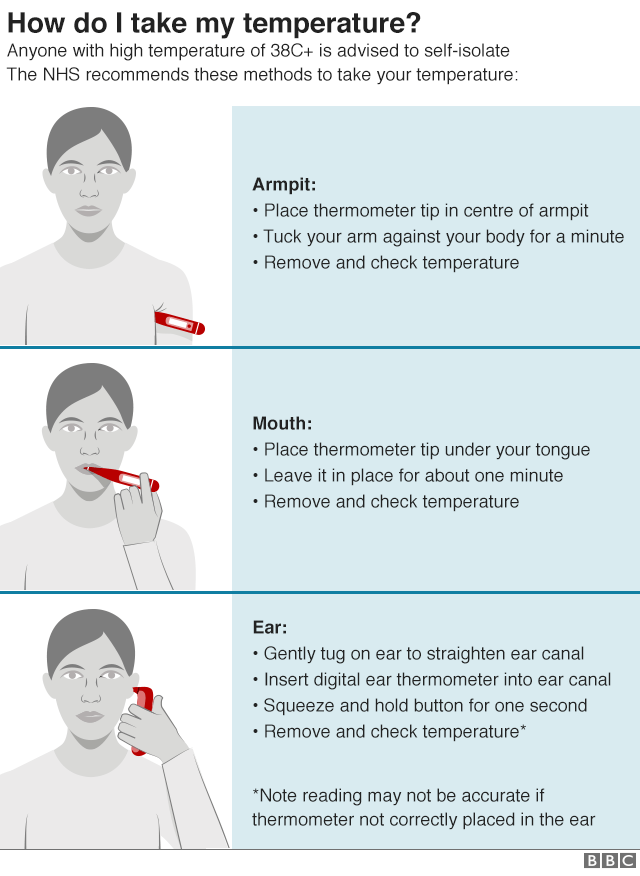
Who gets tested and how does it work?
In its latest advice, Public Health England (PHE) has said those who are self-isolating with mild symptoms will not be tested.
However, all hospital patients with flu-like symptoms will be tested.
If you need testing in the UK results may be available on the same day, but you may be asked to stay at home and self-isolate. while you wait.

How fast is it spreading?
Tens of thousands of new cases are being reported worldwide each day. However, it is thought health agencies may be unaware of many cases.
After starting in China, coronavirus is now spreading fast in many other countries.
It took 67 days from the first reported case to reach the first 100,000 cases, 11 days for the second 100,000 cases and just four days for the third 100,000 cases.
Source: BBC https://www.bbc.co.uk/news/health-51048366


